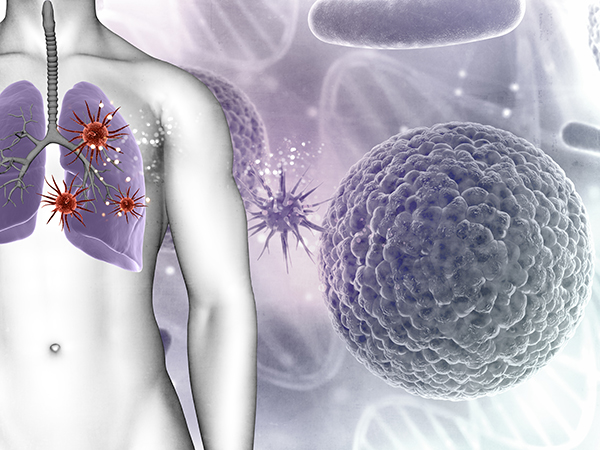Lung Cancer
Lung cancer is a type of cancer that begins in the lungs. It is one of the most common cancers worldwide and is a leading cause of cancer-related deaths. There are two main types of lung cancer: non-small cell lung cancer (NSCLC) and small cell lung cancer (SCLC). NSCLC is the most common type, accounting for about 85% of lung cancer cases, while SCLC accounts for about 15%.
Risk factors for lung cancer include:
- Smoking: Cigarette smoking is the leading cause of lung cancer, responsible for the majority of cases. The risk of lung cancer increases with the number of cigarettes smoked and the duration of smoking. Secondhand smoke exposure also increases the risk.
- Radon gas exposure: Radon is a naturally occurring radioactive gas that can accumulate in homes and other buildings. Prolonged exposure to high levels of radon increases the risk of lung cancer.
- Occupational exposure to carcinogens: Exposure to certain workplace carcinogens such as asbestos, arsenic, chromium, nickel, and diesel exhaust can increase the risk of lung cancer.
- Family history: Having a close relative (such as a parent or sibling) with lung cancer increases the risk.
- Personal history of lung disease: People with a history of lung diseases such as chronic obstructive pulmonary disease (COPD) or pulmonary fibrosis have a higher risk of lung cancer.
Symptoms of lung cancer may include
Persistent cough
Chest pain
Shortness of breath
Coughing up blood
Hoarseness
Fatigue
Unintended weight loss
Recurrent respiratory infections
Diagnosis typically involves imaging tests such as chest X-rays, CT scans, and PET scans, as well as biopsies to examine cells from the suspicious area for the presence of cancer.
Treatment options for lung cancer depend on factors such as the type, stage, and characteristics of the cancer, as well as the patient's overall health and preferences. Treatment may include surgery, radiation therapy, chemotherapy, targeted therapy, immunotherapy, or a combination of these approaches.
The prognosis for lung cancer varies widely depending on factors such as the stage of the cancer, its characteristics, and how well it responds to treatment. Early detection and advances in treatment have improved survival rates and quality of life for some people diagnosed with lung cancer. However, the prognosis for lung cancer remains generally poor, especially in cases diagnosed at advanced stages. Quitting smoking and reducing exposure to other risk factors can help prevent lung cancer.














